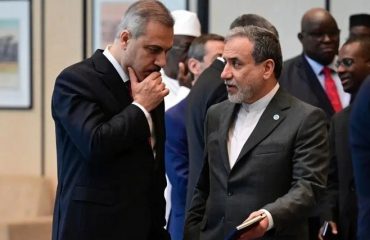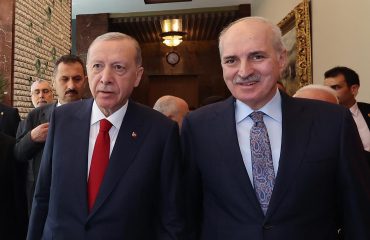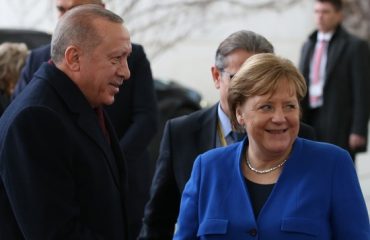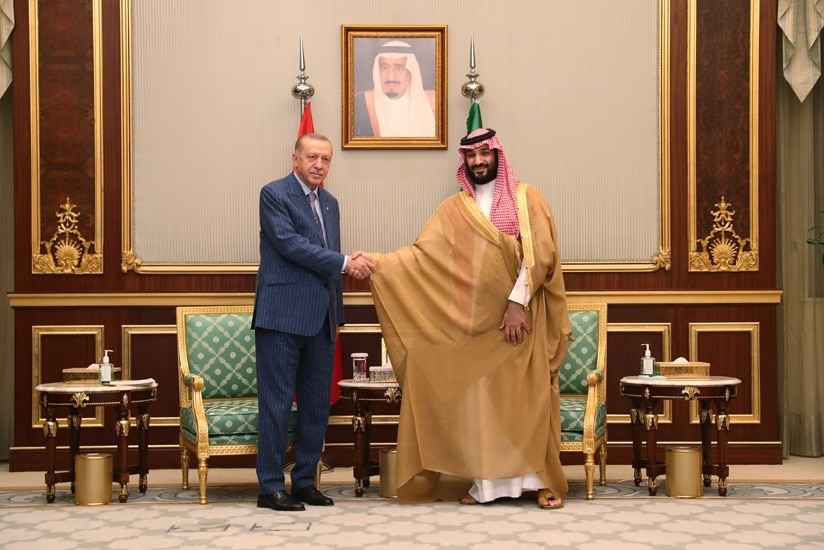
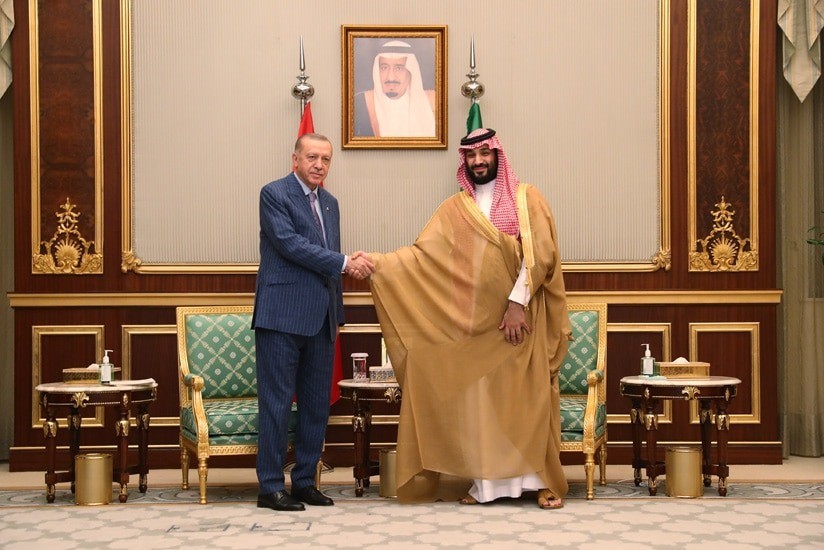
The visit of Crown Prince Muhamed Bin Salman to Turkey on June 22 is a significant step towards normalization of relations and enhanced economic cooperation between Saudi Arabia and Turkey. (Photo: Presidency)
The Gulf has always been a playground for major powers for centuries thanks to its geographic location, geostrategic importance, and rich hydrocarbon resources. The rivalry between the British and Ottoman Empires during the 19th and 20th centuries and the fall of the latter led to the creation of the present political order with new states sitting on gigantic oil and natural gas reserves, run by Arab dynasties. Struggle for influence and narrow interests in the region is the order of the day.
Iran, Qatar and Saudi Arabia
The main two rivals of the post WWs era, the Kingdom of Saudi Arabia (KSA ) and Iran, are still engaged in fierce competition and hostilities. They continue to use their own narrow and dissimilar interpretation of Islam as a foreign policy tool and try to impose their opposing ideologies (Wahhabism for Saudi Arabia and Shii Khomeinism for Iran) over other Islamic countries and beyond. The clergy continues to forcefully control and maintain a tight grip on the legal order, social life and education in both countries.
An important development is the deep concern of the Gulf dynasties about the rising influence of Iran in the Middle East as a whole. In fact, Iran’s presence in Iraq, Syria, Lebanon, and Yemen is perceived as a threat. Moreover, the Shia population in various Gulf countries has been seen as a Trojan horse suitable for manipulation by Iran.
Turkey’s role in the Qatar blocade
Another source of concern for the Saudi and UAE rulers has been the alleged support given by Qatar and Turkey to Muslim Brotherhood, an Islamist group perceived as a threat to their regimes. The military cooperation agreement between Turkey and Qatar signed in 2014 and ratified in 2017 was an additional source of frustration.
All these developments, compounded with the visit of President Trump to Riyad led to the land, sea, and air blockade on Qatar in June 2017. However, Turkey’s established air corridor to help provide basic needs rendered the blockade ineffective. Morover, the deployment of additional Turkish forces in Qatar was not well received and led to the worsening of relations between Turkey and Saudi Arabia.
Nevertheless, in view of the new geopolitical environment and particularly the loss of their ally Trump in the White House, the Saudi authorities and their partners decided to lift the unjustified blockade against Qatar on 5 January 2021. This led to a rapprochement between Qatar and its GCC neighbors. In view of the ongoing economic difficulties and lack of foreign direct investment from the west, Turkey has also seized the opportunity and attempted to end its isolation in the region. The recent visits of President Erdoğan to the UAE and Saudi Arabia were steps in this direction.
Ukranian War and impact of energy crisis
The unexpected economic recovery in 2021 led to increase in energy demand growth and a steep surge in oil and gas prices. Harsh weather conditions and mismanagement of the gas storage capacity led to an energy crisis in Europe. The Russian invasion of Ukraine and the creeping sanctions on Russia led to the worsening of the energy crisis in Europe. As a result, the Gulf countries are likely to profit from their growing visibility and spare oil and LNG capacities. A case in point is the decision by President Biden to visit the region during the month of July.
Relations between Turkey and Saudi Arabia gained momentum and diversified during the last decades. Turkish companies and contractors played a significant role in building major Saudi infrastructure. Turkey became one of the major destinations for Saudi people and investors.
Not on the same page
Another salient point is the special importance accorded by President Erdoğan to his relations with former King Abdullah. In fact, Turkish Saudi relations were kept high on the list of priorities of the Turkish government. It will be recalled that when King Abdullah visited Turkey in 2006, he was warmly received and pampered in such a way that the opposition criticized the special treatment. Another gesture was made when King Abdullah passed away in 2015 by declaring three-day mourning. But things have changed dramatically with the arrival of King Suleyman bin Abdulaziz and his son Mohammed bin Salman, the Crown Prince and de-facto ruler of Saudi Arabia. The Turkish side felt uneasy about the assertive foreign policy practices of the Crown Prince. The two sides were not on the same page on regional issues including Syria, Libya, Yemen and the blockade on Qatar.
Khashoggi case
Finally, the assassination of Jamal Khashoggi, at the Saudi Consulate in Istanbul, dealt a huge blow to the already strained relations. The incident represented a huge challenge to Turkey’s sovereignty and prestige, but at the same time tarnished the image of the Saudis. The Saudis refused to engage with the Turkish authorities. Nevertheless, this matter seems to have been left behind with the decision by the Turkish court to transfer the case to the Saudi authorities.
The recent visit of President Erdoğan to Saudi Arabia on 28-29 April 2022 paved the way for rapprochement between the two countries. The Saudi side, as a gesture of goodwill, lifted the boycott against Turkish goods before the visit.
The visit of Crown Prince Muhamed Bin Salman to Turkey on 22 June is another significant step towards normalization of relations and enhanced economic cooperation between Saudi Arabia and Turkey. However, given the trust gap, full normalization might take time. It should be pursued in good faith by both sides with confidence building actions through diplomacy and dialogue.
